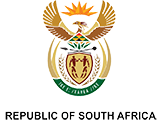Lorem ipsum, dolor sit amet consectetur adipisicing elit tenetur iste voluptas eveniet nulla nisi eum expedita molestias.
-
Amendment to the Prevention and Combating of Corrupt Activities Act (PRECCA) criminalising failure to prevent bribery
The amendment to the PRECCA Act on the failure of persons or entities to prevent bribery is included in the Judicial Matters Amendment Bill introduced in Parliament in March 2023. (B7 – 2023)
-
Anti-Money Laundering Legislation General Laws (Anti-Money Laundering and Combating Terrorism Financing) Amendment Act (GLAA) (Act 22 of 2022)
The General Laws (Anti-Money Laundering and Combating Terrorism Financing) Amendment Act (GLAA) became law in December 2022.
The following were amended:
• The Companies Act, Trust Property Control Act, Nonprofit Organisations Act, Financial Intelligence Centre Act, and Financial Sector Regulation Act
• Amendments to the Companies Act, Trust Property Control Act and Nonprofit Organisations Act also require the making of Regulations
• The Regulations in terms of the Trust Property Control Act and the Nonprofit Organisations Act were gazetted.
-
Companies Second Amendment Bill (B27 – 2023)
The Companies Second Amendment Bill was submitted to parliament in August 2023, extending the time bar period for bringing an application to declare a director of a company delinquent, beyond the current two year period.
-
Electoral Laws Amendment Act (Act 1 of 2023)
The President’s Response indicated that the final Electoral Laws Amendment Bill would be reviewed to determine whether it satisfied the Commission’s recommendations on electoral reform. The President signed the Electoral Laws Amendment Bill into law in April 2023.
• The amended law now provides for independent candidates in the National Assembly and provincial legislatures.
• The amended act also requires the establishment the Electoral Reform Consultation Panel within four months of gazetting the amendments.
• The Panel will make non-binding recommendations on potential reforms of the electoral system for future elections after the 2024 polls.
-
General Intelligence Laws Amendment Bill (GILAB) (BX – 2023)
The GILAB seeks to amend the National Strategic Intelligence Act no 39 of 1994, Intelligence Services Act, no 65 of 2002 and other relevant Intelligence laws so as to, amongst others:
• Disestablish the State Security Agency and establish a domestic intelligence service and foreign intelligence service, in line with SCC recommendations.
• A draft of internal reforms and other actions to respond to the SCC recommendations have been implemented at the State Security Agency.
-
National Prosecuting Authority Amendment Act 10 of 2024
The National Prosecuting Authority Amendment Act 10 of 2024 intends to amend the National Prosecuting Authority Act, 1998, so as:
• to insert certain definitions; and
• provide for the establishment of the Investigating Directorate against Corruption and its powers and functions;
• the appointment of investigators in the Investigating Directorate against Corruption;
• the vetting of investigators;
• the remuneration and conditions of service of investigators;
• the establishment of a mechanism to deal with complaints of a serious nature pertaining to persons appointed at or assigned to an investigating directorate;
• the powers and functions of investigators;
• to provide for transitional arrangements; and
• to provide for matters connected therewith.
-
Public Administration Management Amendment Bill (B10 – 2023)
The Amendment Bill has been introduced in Parliament. Amongst others it clarifies prohibition on government employees doing business with the state.
-
Public Procurement Bill (B18 – 2023)
The Bill responds to a number of the Commission’s recommendations related to procurement reform.
These include:
• harmonisation of laws across the three spheres of government
• increasing transparency in procurement processes to combat corruption
• binding codes of conduct for persons involved in procurement
• protections for accounting officers and improved processes for disbarring of suppliers who contravene procurement laws.
• further establishing the Public Procurement Office within the National Treasury, with powers to issue legally binding instructions, enter and search premises and seize.
• envisaging the establishment of an independent Public Procurement Tribunal to review decisions by the Public Procurement Office.
-
Public Service Amendment Bill (B13 – 2023)
Key issues in the National Framework for the Professionalisation of the Public Service are addressed through the amendments including:
• the transfer of administrative powers to Heads of Departments from Ministers
• creating a Head of Public Administration by augmenting the powers of the DG: Presidency to support the President in managing the appointment and career incidents of HODs.
New Acts, Bills and Amendments
-
Amendment to SARS Act
The National Treasury has initiated the process to amend the SARS Act to implement the recommendations of the Nugent Commission including:
• providing for an open, transparent and competitive process for the appointment of the SARS Commissioner
• the appointment of adequate oversight mechanisms such as an inspector general.
-
Review of whistle-blower legislation
The Department of Justice and Constitutional Development (DOJ&CD) has published a comprehensive review of the current legislative framework and recommendations for reforms.
-
State-Owned Enterprises Bill
The State-Owned Enterprises Bill and its regulations will codify the appointment process of SOE Boards so that principles and processes become legally binding and that sanctions for non-compliance are put in place. The Bill has been developed and is currently in consultation. The President’s Response indicated that it was anticipated that the Bill would be finalised in the 2022/23 financial year, however the Department of Public Enterprises reports that consultations with key stakeholders are still to be held during the 2023/24 year.
Legislative processes under way
- State Capture progress report November 2023
- High level progress and actions table
- Parliament’s progress report: action list
- SCC recommendations: court cases and matters


 Search actions and progress by recommendation type
Search actions and progress by recommendation type
 View actions and progress by responsible department
View actions and progress by responsible department
 View anti-corruption legislation and reports
View anti-corruption legislation and reports